General
Youth Empowerment Takes Center Stage at Julius Nyerere Youth Festival 2025
Published
10 months agoon
By
Mak Editor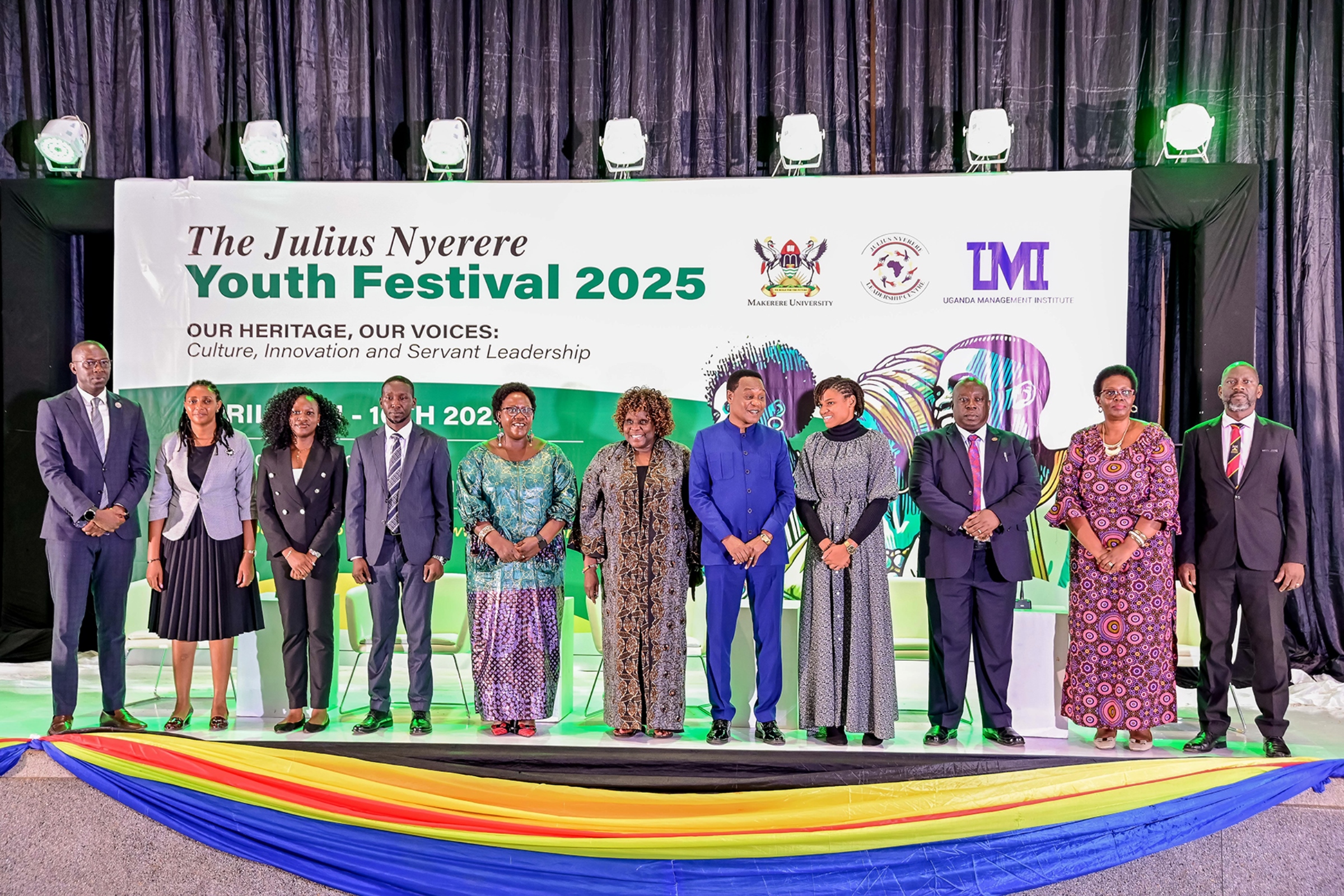
On April 15th and 16th 2025, leaders from various sectors, students, and distinguished guests converged at Makerere University for the Julius Nyerere Youth Festival 2025—a vibrant platform designed to inspire, educate, and empower the next generation of leaders.
Held under the theme, “Our Heritage, Our Voices: Culture, Innovation, and Servant Leadership,” the festival celebrated the enduring legacy of Mwalimu Julius Kambarage Nyerere, founding President and Father of the Nation of the United Republic of Tanzania. It also marked the commemoration of his 103rd birthday, celebrated in style through a dynamic, youth-driven programme.
Organized by the Julius Nyerere Leadership Centre (JNLC) at Makerere University in partnership with the Uganda Management Institute (UMI), the two-day event featured a rich blend of intellectual exchange, cultural expression, and leadership development activities. Highlights included:
- A powerful keynote address: “Shaping the Next Generation of Servant Leaders: Mwalimu Nyerere’s Legacy”
- Panel discussions on Servant Leadership for Societal Transformation and Youth Voices for Societal Change
- Cultural showcases, storytelling inspired by Nyerere’s teachings, and poetry sessions celebrating African unity and Pan-Africanism
- A Youth Innovation & Entrepreneurship Workshop, Innovation Pitch Challenge, Mentorship Walk (Walking in Nyerere’s Footsteps), and conversations on mental health and wellbeing
Honoring a Legacy of Servant Leadership
Mwalimu Julius Nyerere, born on 13th April 1922, is revered for his humility, deep sense of purpose, and unyielding commitment to African liberation and unity. As a young scholar, he studied at Makerere University—then the only tertiary institution in East Africa—where he earned a teaching diploma and began developing the ideas that would shape his Pan-African vision. Throughout his life, Nyerere championed equity, youth empowerment, gender equality, African culture, and education for sustainable development.
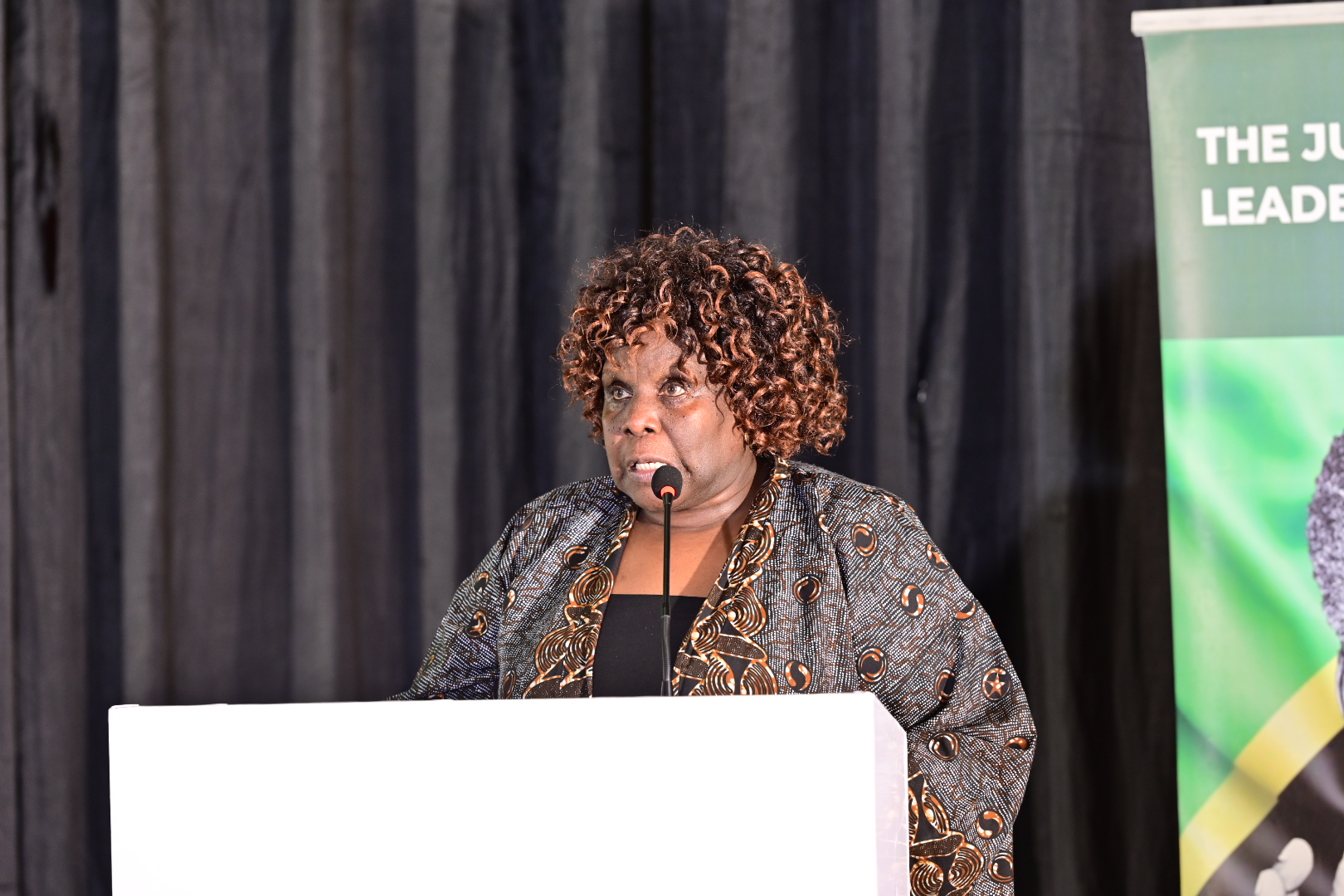
In her remarks, Dr. Nansozi Suzie Muwanga, Executive Director of JNLC, noted that the Centre was founded to advance Nyerere’s values by preparing a new generation of servant leaders. Established on 6th October 2018 through the initiative of H.E. President Yoweri Kaguta Museveni, JNLC runs programs that empower youth to harness their potential, preserve cultural heritage, and develop innovative solutions to today’s societal challenges.
“Mwalimu Nyerere was a passionate believer in the role of young people in shaping Africa’s destiny,” Dr. Muwanga affirmed. “This festival reaffirms that belief.”
Reaffirming Regional Unity and Youth Potential
In his address, H.E. Maj. Gen. Paul Simuli Kisesa, High Commissioner of the United Republic of Tanzania to Uganda, highlighted the festival’s role in recognizing youth as active agents of change, capable of linking Nyerere’s timeless vision to contemporary progress. He encouraged young people to embrace their cultural identities while harnessing innovation to advance their communities.
H.E. Kisesa reminded students that Nyerere’s Pan-Africanist ideals took root while he was at Makerere and urged them to connect with the same spirit of purpose and service. He emphasized the strong ties between Uganda and Tanzania and cited infrastructure projects like the East African Crude Oil Pipeline as modern expressions of Nyerere’s Pan-African vision.
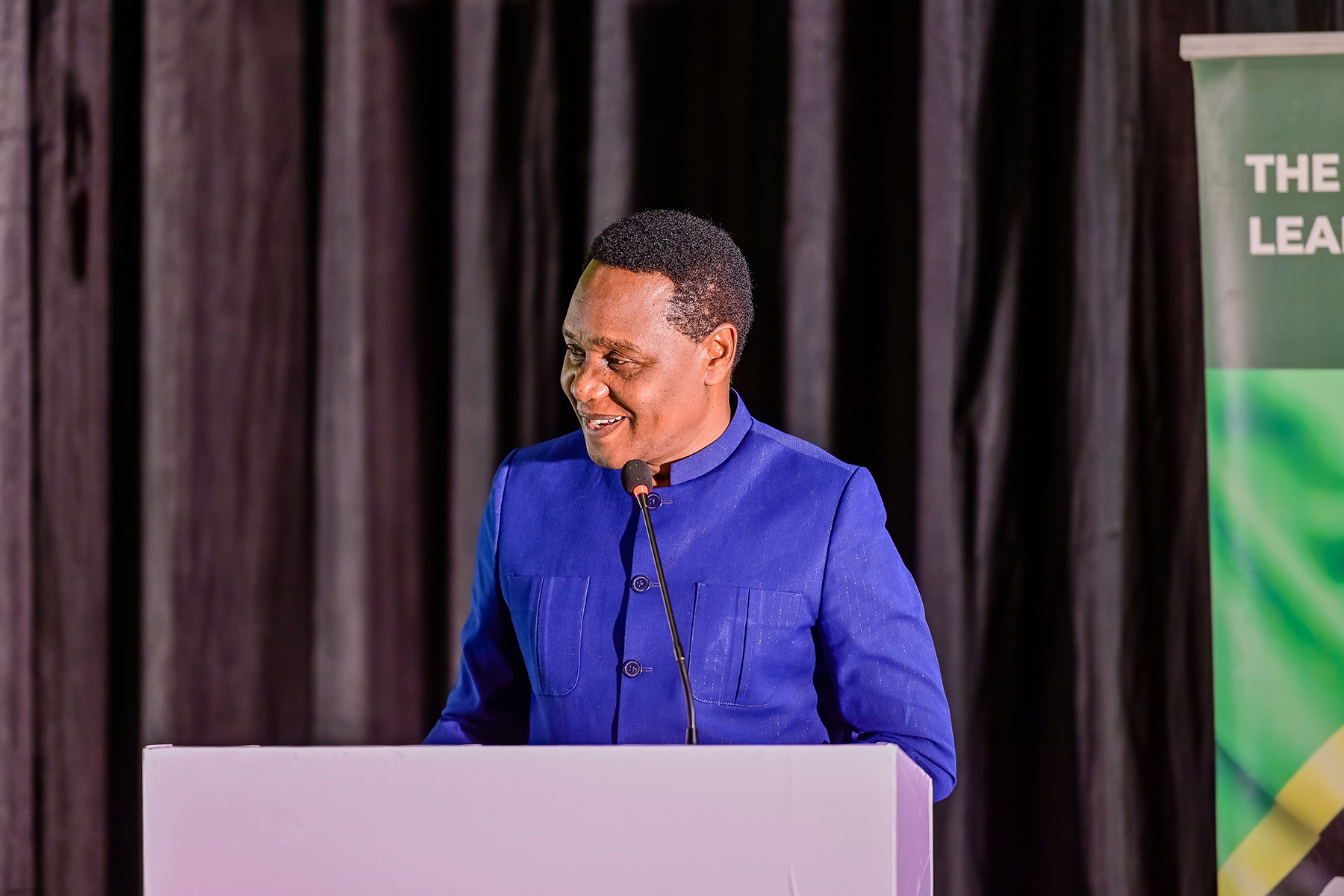
“This partnership reflects a dedication to regional unity—empowering young people to contribute to a prosperous East Africa,” he said, pledging continued support to JNLC to ensure Nyerere’s legacy endures.
Makerere University: A Century of Leadership and Excellence
Representing the Vice Chancellor, Prof. Barnabas Nawangwe, Dr. Julius Kikooma, Director of Graduate Training, celebrated Makerere’s 103-year legacy as a cradle of African leadership. Prof. Nawangwe reaffirmed the University’s commitment to nurturing the next generation through education that builds wisdom, purpose, and service.
“Since its founding in 1922, Makerere has grown into one of Africa’s most prestigious institutions,” he noted. “We are proud to have educated presidents, scholars, innovators, and change makers across the continent—including Mwalimu Nyerere himself.”
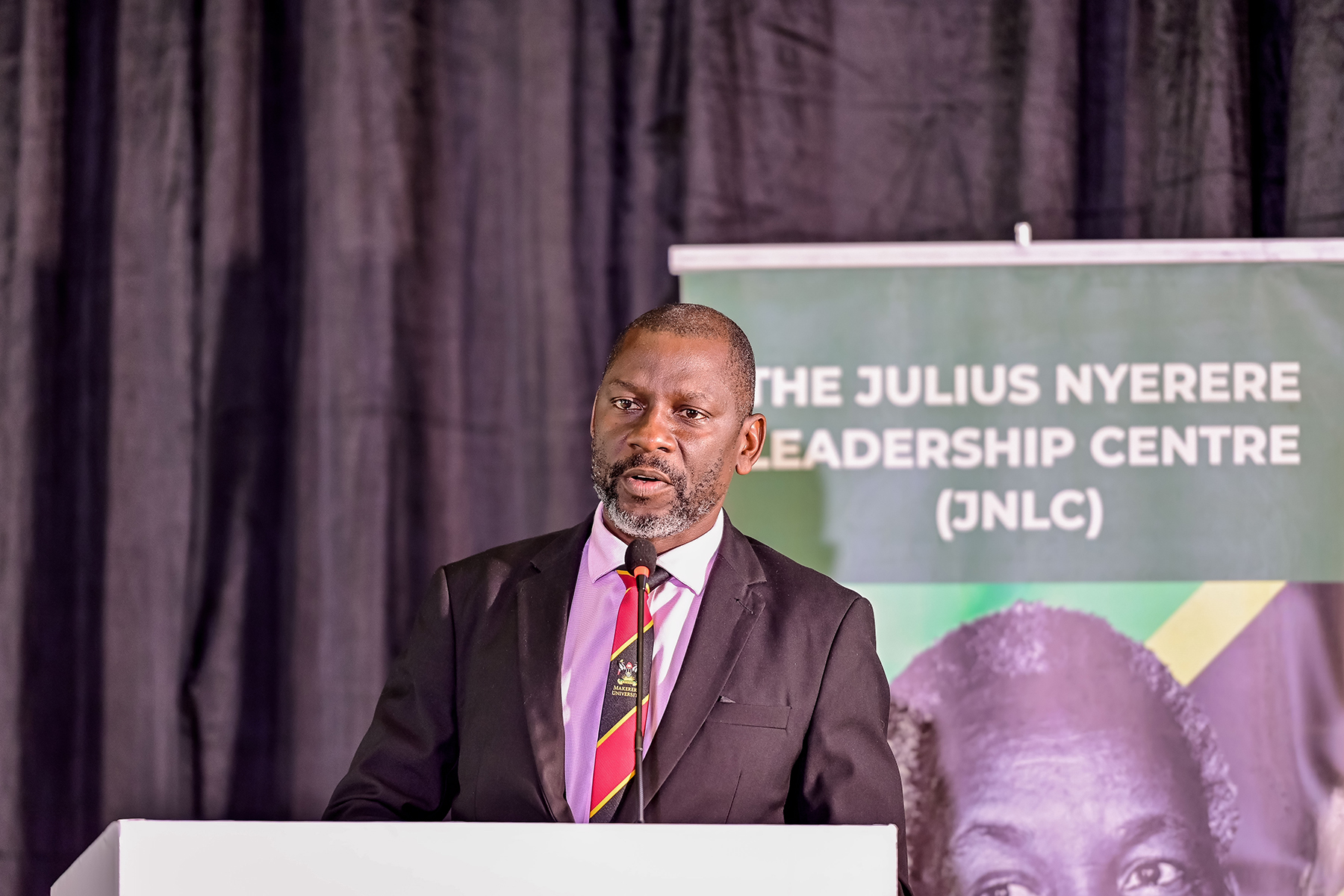
He added that the Julius Nyerere Leadership Centre continues to provide a nurturing environment for young leaders to grow in character, competence, and commitment to society.
A Call to Action
Mr. Andrew Tumusiime, a Board Member and representing the Chair of the Board of Directors – Julius Nyerere Leadership Centre Dr. Kasozi Mulindwa, emphasized the Centre’s dedication to amplifying youth voices and building their leadership capacity. “The Centre is committed to listening to young people’s aspirations and walking with them toward a better future,” Mr. Tumusiime said.
Acknowledging concerns about the future, he urged youth to take meaningful action now and shape a legacy they can be proud of. “The time to lead is now,” he stated. “Together, we can build the Africa that Nyerere envisioned—united, innovative, and just.”
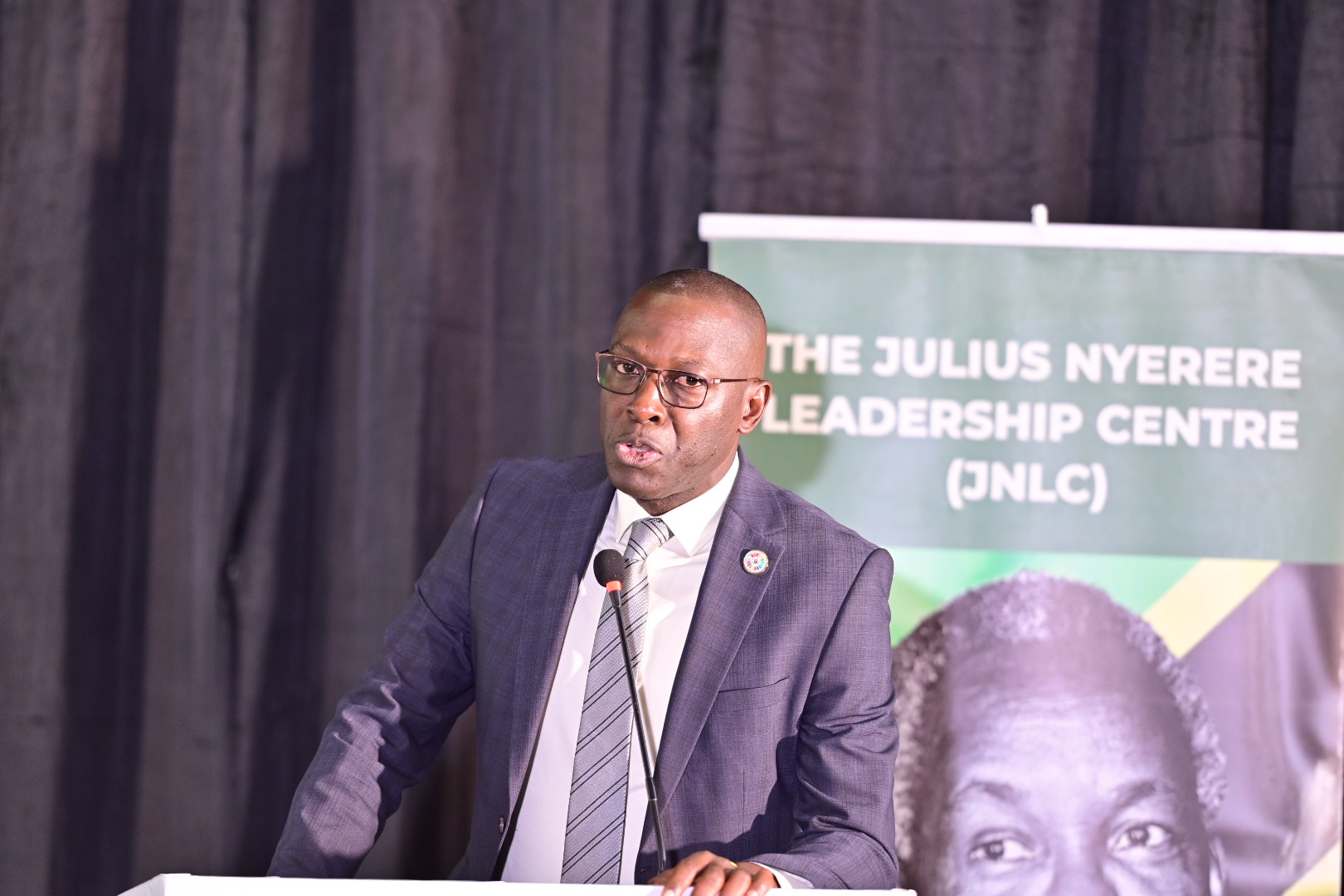
Reigniting Nyerere’s Spirit Through Youthful Leadership and Collective Action
The Chairperson of the JNLC Board of Directors, Dr. Saturninus Kasozi-Mulindwa, set the tone for the second day of the Festival with a powerful message: “Today is about re-igniting Mwalimu Julius Nyerere’s spirit through your voices as young people—through our culture, our innovations, and your leadership.”
Dr. Kasozi-Mulindwa emphasized the richness and resilience of African heritage, rooted in unity, dignity, and communal responsibility. “Your voices matter. Young people are not just the leaders of tomorrow—they are the leaders of today,” he declared.
Drawing attention to the interactive nature of the festival, he encouraged participants to actively engage in the panel discussions, exhibitions, innovation showcases, and intergenerational dialogues. These platforms, he noted, are essential for amplifying youth voices, challenging injustices, and shaping narratives grounded in African identity and values.
“This is your moment,” he concluded, “to not only dream of change but to drive it—to question, to learn, to lead, and to inspire transformation.”
Building on this foundation, Dr. James Nkata, Director General of Uganda Management Institute, represented by Associate Professor Gerald Karyeija, echoed the ethos of servant leadership. He called on youth to prioritize critical pillars such as education, healthcare, African unity, and collective responsibility.
“Be the custodians of our heritage,” he urged. “Build strong, self-reliant communities grounded in education, family, and moral leadership.” He concluded with a rallying call: “Let us honour Nyerere’s legacy by working for a brighter future for ourselves, our communities, and our continent. Go and become servant leaders.”
The keynote address that followed served as a compass for the rest of the day’s discussions.
Keynote Address: Shaping the Next Generation of Servant Leaders
In a keynote address titled “Shaping the Next Generation of Servant Leaders: Mwalimu Nyerere’s Legacy,” Ms. Eva Mulema Matsiko, Chief of Party at RTI International, challenged young leaders to embrace excellence and purpose-driven leadership.
“Harness every opportunity to the best of your advantage,” she advised. “Like Mwalimu Nyerere, whose remarkable list of accomplishments and honorary doctorates show us that excellence is within reach if we are willing to pursue it.”
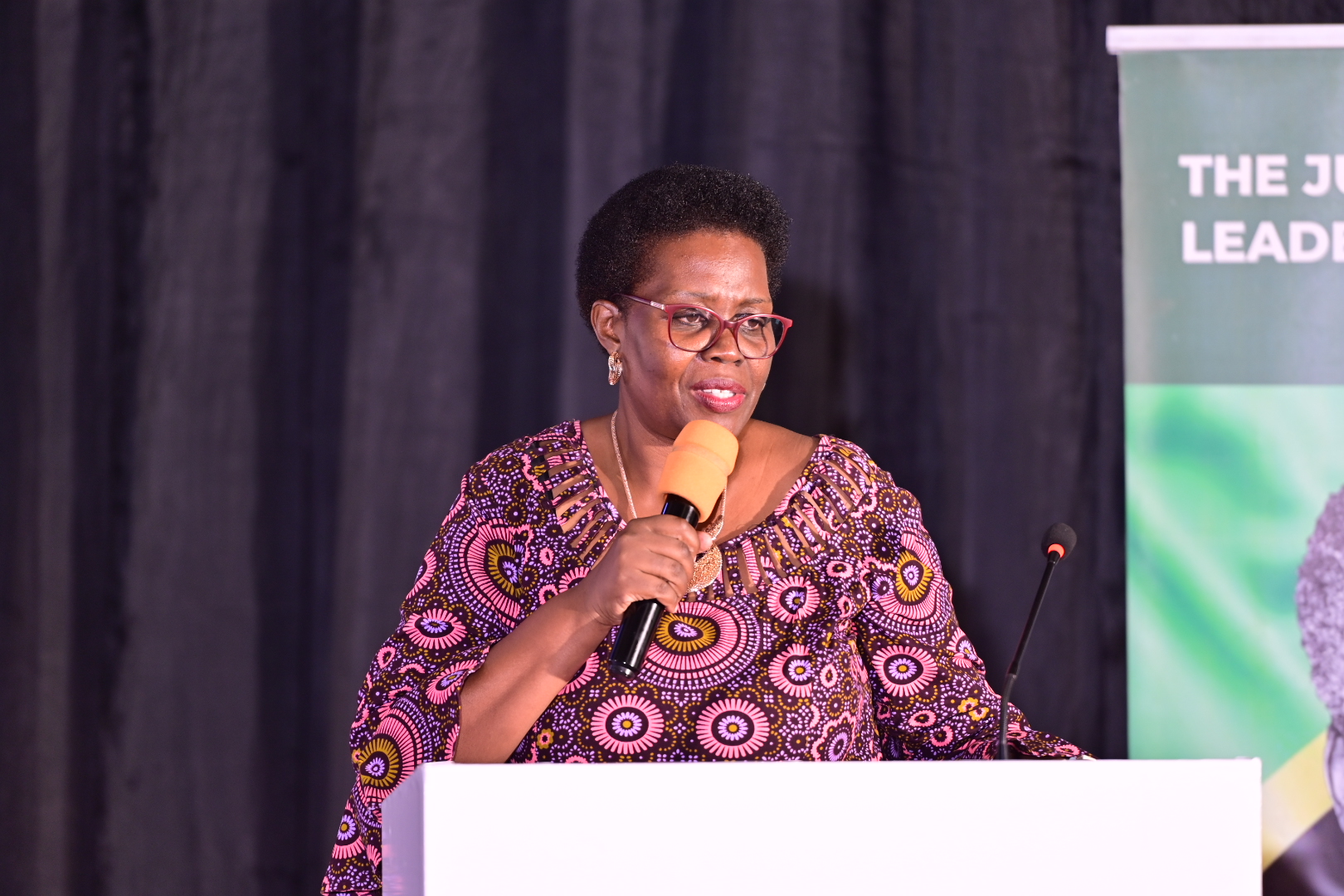
Ms. Matsiko reflected on Nyerere’s early days at Makerere University, where he nurtured his Pan-Africanist ideals. She called on the youth to define their values and ensure that their actions align with their words.
“Mwalimu Julius Nyerere did not just speak about unity and justice—he lived it. He sacrificed personal comfort to realize his ideals. That is the kind of selfless leadership we must emulate,” she said.
She highlighted Nyerere’s commitment to youth and women empowerment, African liberation movements, and indigenous culture—especially his promotion of Kiswahili as a unifying language.
Quoting African Development Bank President Akinwumi Adesina, she stressed the urgency of self-reliance: “Africa must chart its future relying not on the benevolence of others, but on its own determination.”
She concluded with a call to action for both current leaders and mentors: “Model the values you wish to see in the next generation. Provide real opportunities for youth to lead. Only then can we cultivate servant leaders in the true spirit of Mwalimu Nyerere.”
Panel I: Servant Leadership for Societal Transformation
The first panel discussion, “Servant Leadership for Societal Transformation”, chaired by Ms. Marion Kirabo, former Guild Minister for Gender at Makerere University, featured passionate insights from Ms. Josephine Aanyu, Mr. Gracious Kadondi, and Mr. Kenny Ronnie Rubanga.
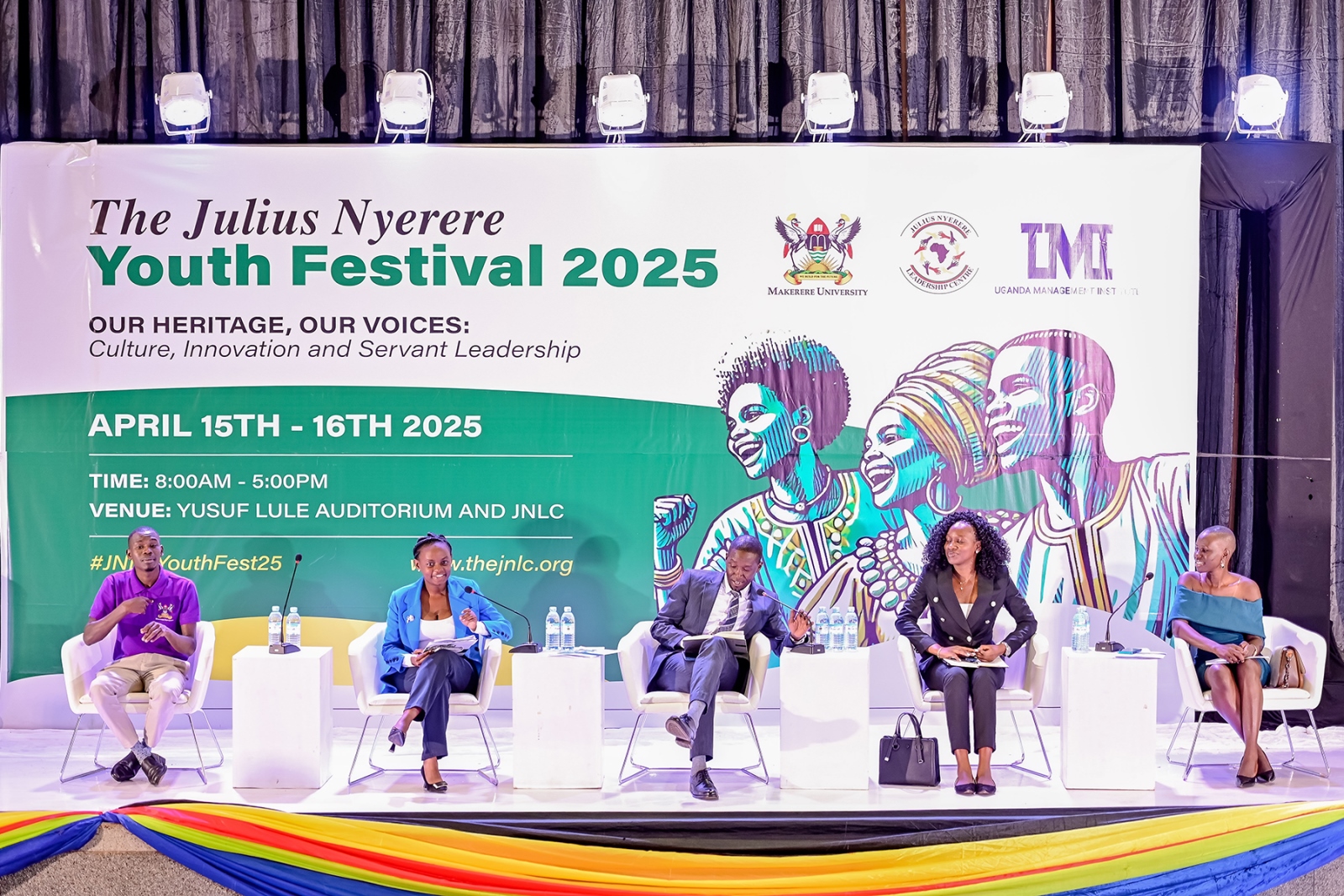
Mr. Kenny Ronnie Rubanga, Guild President at UMI, emphasized the urgency of unity and ethical leadership. “We must unite or perish,” he said, quoting Nyerere. He called on the youth to rise above tribalism, uphold integrity, and advocate for policies that are people-centered.
“Uganda has excellent policies, but they are undermined by poor implementation—often by us,” he noted. “Before blaming others, assess yourself and your peers.”
Ms. Josephine Aanyu, former Guild Speaker at Uganda Christian University, emphasized the importance of accountability and modesty in leadership. She urged young leaders to avoid extravagance and instead focus on transparent management of entrusted resources.
Addressing unemployment, she encouraged youth to form collaborative teams and generate impactful, community-based solutions. “We are brilliant and creative. Let’s use our collective energy to create jobs and opportunities,” she said.
Ms. Gracious Kadondi, the 91st Vice Guild President of Makerere University, highlighted ethical leadership as a combination of empathy, transparency, and public service. She advocated for mentorship programs to nurture a new generation of ethical leaders and emphasized the need to connect leadership to real societal needs.
Panel II: Youth Voices for Social Change
The second panel discussion, “Youth Voices for Social Change”, moderated by Dr. Gardner Rwakiseta Herbert, Programme Manager at JNLC, featured Mr. Robert Maseruka, Ms. Charity Nduhura, and Ms. Rose Nabwire.
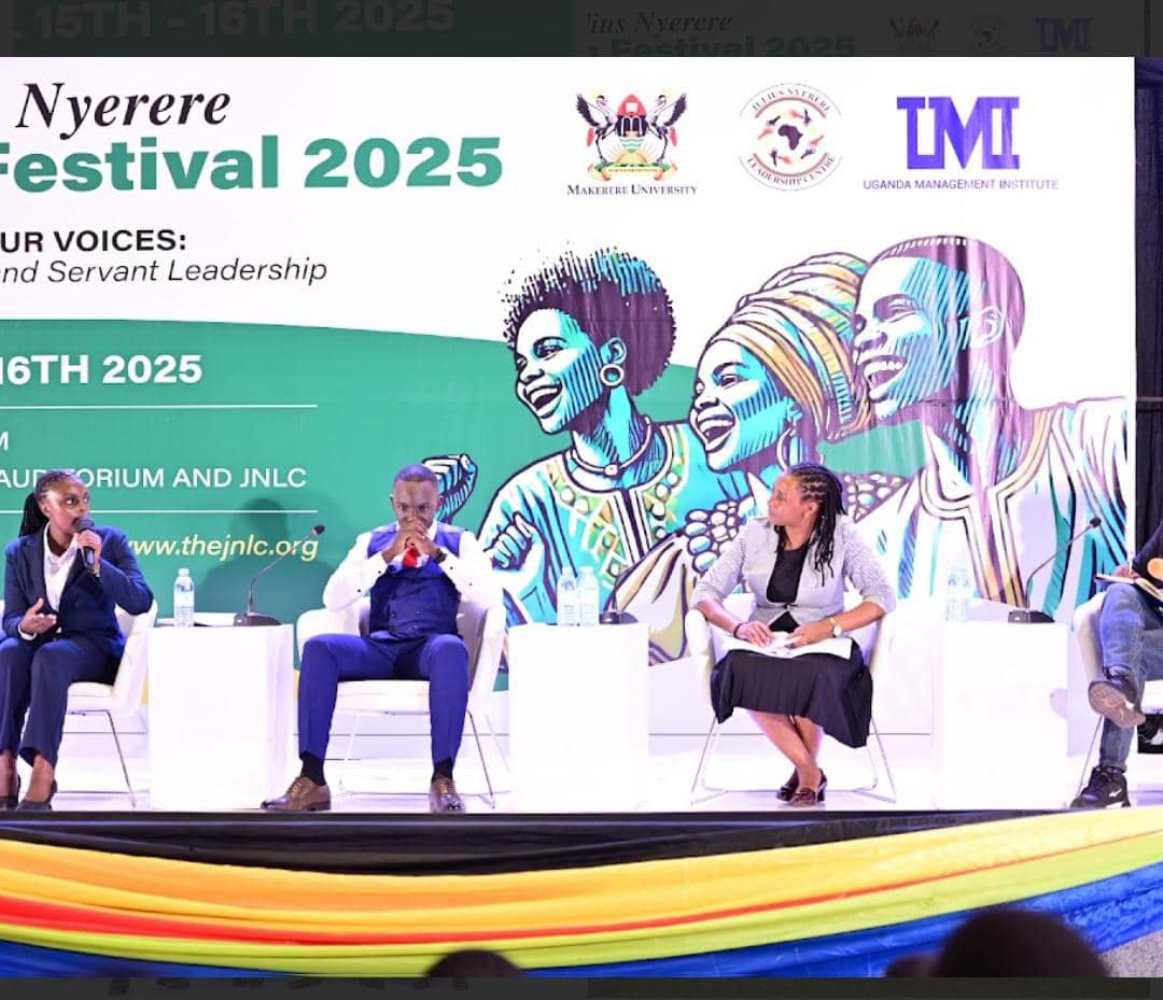
Mr. Robert Maseruka, 89th Guild President of Makerere University, emphasized equity and inclusion in leadership, citing the Makerere Guild Constitution’s provisions for women and persons with disabilities.
He urged young people to reflect on their life’s purpose: “Great leaders—whether Jesus Christ, Napoleon, or President Museveni—discovered their purpose early. What is yours? What are you willing to stand—or even die—for?”
The panel continued with more reflections on grassroots activism, the importance of youth representation in governance, and using creativity to challenge the status quo.
Conclusion: Celebrating Legacy, Inspiring Action
In her compelling remarks, Ms. Rose Nabwire, Guild President of Makerere University Business School (MUBS), challenged fellow youth to be bold and intentional about engaging in politics. She urged young leaders to be active listeners and to participate in community empowerment initiatives, such as volunteering and giving back to their communities. Stressing the importance of humility and empathy in leadership, she reminded her peers that true service is rooted in understanding and compassion.
On a more somber note, Ms. Nabwire raised concerns over the increasing commercialization of student politics across universities. She encouraged upcoming leaders to resist this trend and strive for integrity, transparency, and purpose-driven leadership.
Ms. Charity Nduhura, Guild Speaker at UMI, inspired the audience by sharing her personal journey of balancing student life, politics, employment, marriage, and family. As a living testament to the power of resilience and time management, she encouraged young people to understand their priorities and plan their schedules effectively.
In advocating for greater inclusion, Ms. Nduhura appealed to the festival organizers to ensure representation of young women from rural and distant universities in future panel discussions. “We must ensure every voice is heard, especially those from areas often left behind,” she said.
Addressing a persistent societal stereotype, Ms. Nduhura advised women not to be discouraged by those who claim that empowered women intimidate potential partners. “Class attracts class,” she affirmed. “Those who value greatness will always find their way to it.”
Reflections from Butiama: Learning from Mwalimu’s Roots
A moving storytelling session, moderated by Mr. Lawrence Alionzi, the 88th Guild President of Makerere University, brought the spirit of Mwalimu Nyerere closer to home.
Mr. Bruce Mwebaze, a student at Makerere University and a beneficiary of the JNLC’s Butiama learning visit, shared his reflections from the birthplace of Mwalimu Nyerere. He spoke of Nyerere’s deep belief in the power and promise of young people, his humility, and his devotion to servant leadership. Mwebaze recounted how leaders from across Africa would visit Tanzania to learn from Nyerere’s model of transformation—a testament to his enduring influence.
Another visitor to Butiama, Ms. Constance Ichumar, spoke of how the trip provoked deep introspection. “If I died today, what would I be remembered for?” she asked. She praised Nyerere’s vision for a united Africa and his historic efforts to unite Tanzanians under one language—Kiswahili. In his honor, she called upon Ugandans to embrace and learn Kiswahili as a step toward deeper African unity.
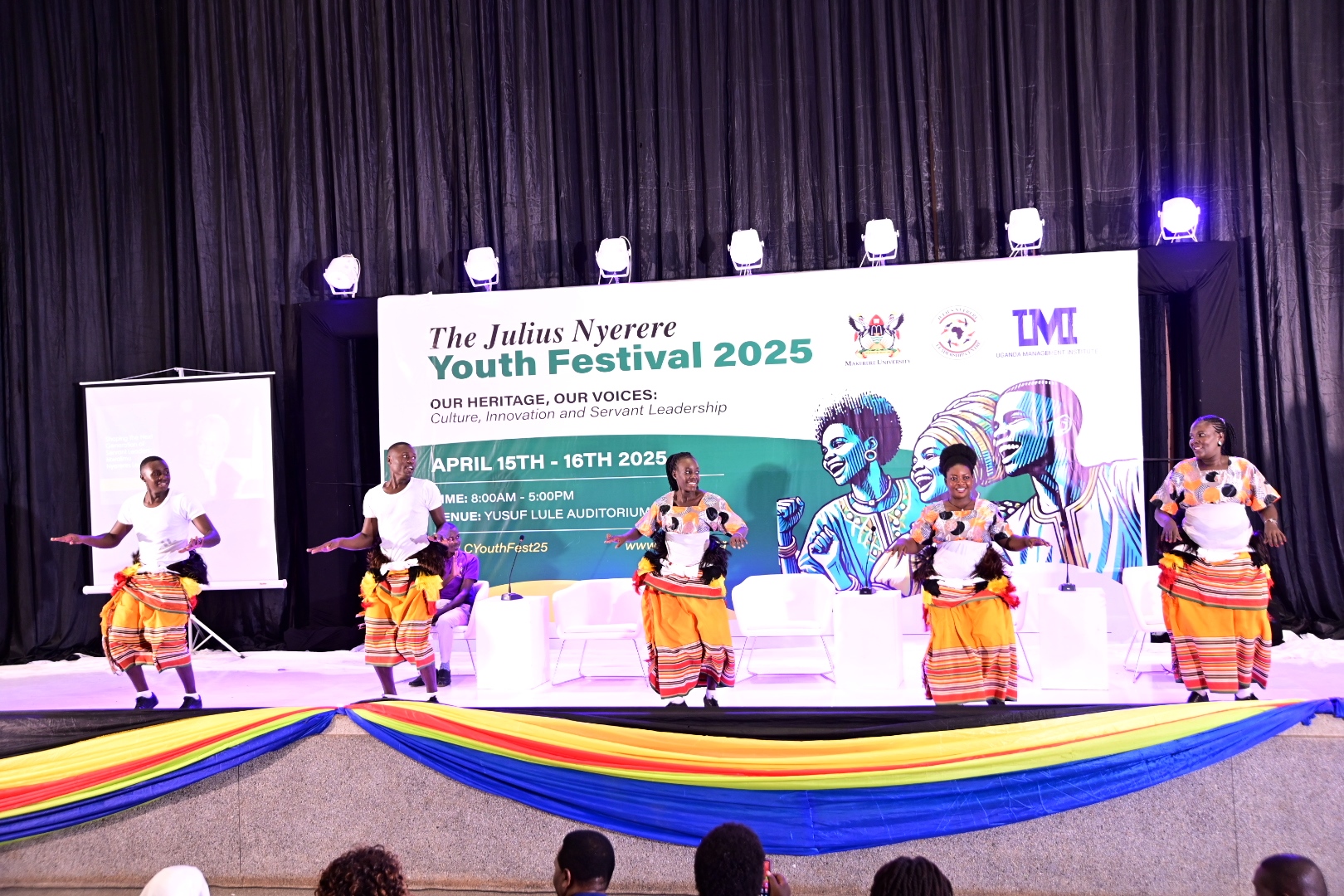
Cultural Expression and the Power of Art
As the sun set, participants were treated to an evening of traditional music and dance performances celebrating African heritage—a fitting tribute to Mwalimu Nyerere, who held African culture in high esteem.
The celebrations reached a heartfelt crescendo with “Voices in the Night”, an evocative social event featuring poetry and spoken word inspired by Mwalimu Nyerere’s teachings. Distinguished voices including Dr. Susan Kiguli, Associate Professor at Makerere University, renowned poet Kagayi Ngobi, and creative writing students, performed poems that celebrated African unity, Pan-Africanism, and servant leadership.
Through rhythm, verse, and song, the evening became a living testament to Nyerere’s spirit—a reminder that leadership is not confined to political office, but is lived daily through action, voice, and legacy.
A Festival of Reflection, Action, and Hope
Day One of the Ignite Youth Voices 2025 Festival did more than commemorate the birth of Mwalimu Julius Kambarage Nyerere. It sparked renewed dialogue, inspired bold ideas, and summoned a new generation to action. In every voice that spoke, every story shared, and every dance performed, Nyerere’s vision lived on.
As the youth continue to carry the torch of servant leadership, African unity, and ethical transformation, one message rang clear: the future is not something to wait for—it is something to shape, starting now.
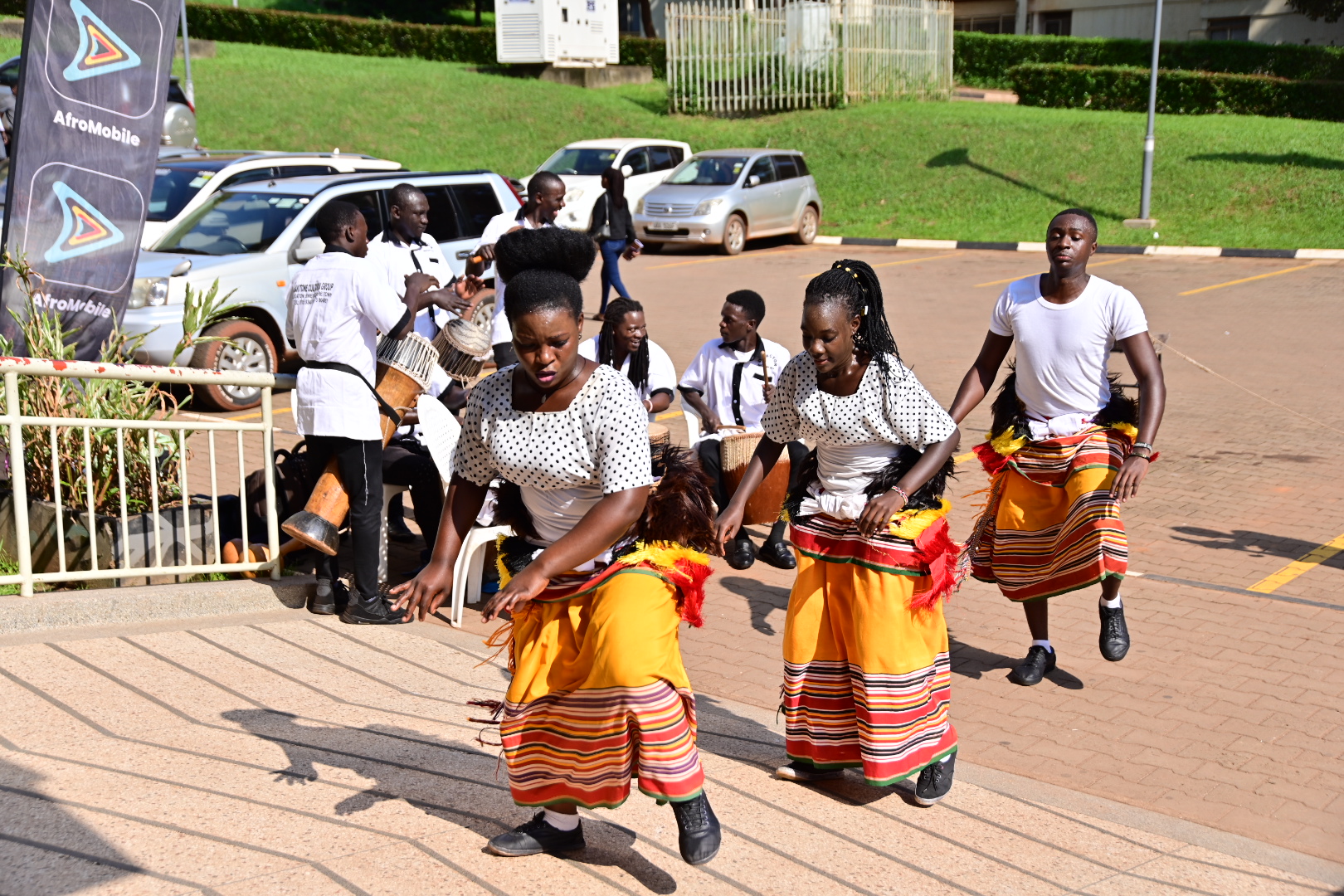
You may like
-


Meet Najjuka Whitney, The Girl Who Missed Law and Found Her Voice
-


Makerere University School of Public Health Graduates First Cohort of Cost-Effectiveness Analysis Short Course
-


Climate variability found to shape malaria trends in Yumbe District
-


Mak hosts First African Symposium on Natural Capital Accounting and Climate-Sensitive Macroeconomic Modelling
-


Uganda Martyrs Namugongo Students Turn Organic Waste into Soap in an Innovative School Project on Sustainable Waste Management
-


Strengthening Global Partnerships to Advance Research, Innovation, and Graduate Training: Makerere University Hosts Delegation from the University of Warwick
General
Mak Selected to Host Alliance for African Partnership Africa Office
Published
10 hours agoon
February 23, 2026
Makerere University has been selected to host the Africa Office of the Alliance for African Partnership (AAP). The significant milestone that underscores Makerere’s role in fostering research, innovation, and global collaborations across the continent was announced at a meeting of the University’s Central Management with an AAP delegation on 23rd February 2026.
Makerere’s selection was based on the University’s robust commitment, alignment with the AAP’s Strategic Plan, and proven ability to manage consortium activities. The AAP, which was initiated by Michigan State University (MSU) in collaboration with Ten African Universities and agricultural policy research networks in 2016, targets critical challenges in education, youth empowerment, health and nutrition, agri-food systems, science and technology, water, energy, environment, and culture and society.
Addressing the delegation consisting of AAP Co-Directors from MSU, Dr. Jose Jackson-Malete and Dr. Amy Jamison, accompanied by newly-appointed Director of the AAP Africa Office, Dr. Racheal Ddungu Mugabi and Ms. Clare Cheromoi, the Vice Chancellor, Prof. Barnabas Nawangwe who appreciated the choice of Makerere to host the Africa Office said:
“One of the greatest challenges facing African universities is PhD training, particularly supervisory capacity. Through partnerships such as the Alliance for African Partnership we can leverage international expertise to strengthen supervision—whether through training supervisors or through joint supervision arrangements.”
Prof. Nawangwe equally applauded joint initiatives such as the Grant Writing and Publication project, which gave rise to the establishment of a Writing Centre that he said can be used to build capacity in AAP member universities with Makerere as the hub. Officially launched on 21st March 2023, the project is living up to its expectation of becoming a springboard for strong postdoctoral collaborative research for both institutions and other US universities.
Dr. Titus Awokuse, Vice Provost and Dean for International Studies and Programs at Michigan State University (MSU) who attended virtually, reiterated that Makerere’s selection reflects its long-standing commitment to advancing African higher education, research excellence, and meaningful global collaboration.
Reflecting on the origins of the Alliance for African Partnerships (AAP), Dr. Awokuse explained that nearly a decade ago, MSU initiated a transformative conversation in Atlanta centered on the question: How should we partner differently? From this dialogue emerged AAP—an Africa-centered consortium that now brings together 12 institutions across Africa and the United States.

He emphasized that AAP is grounded in equity, mutual benefit, shared leadership, and deep respect for African priorities and expertise. Since its founding, MSU has served as convener and key supporter, working with member institutions to strengthen research collaboration, promote faculty and student engagement, and address shared development priorities.
Dr. Awokuse underscored that AAP’s success is the result of collective vision and commitment, not the efforts of a single institution. He paid tribute to Lilongwe University of Agriculture and Natural Resources for hosting the Africa Office in its early years and acknowledged the foundational leadership of the inaugural Africa Office Director.
He described the launch of the Africa Office at Makerere University as a significant milestone that reinforces Africa-led leadership, strengthens regional collaboration, and enhances responsiveness to emerging opportunities. MSU, he affirmed, remains fully committed to AAP and to working closely with Makerere and all consortium partners to expand collaborative research, nurture the next generation of scholars, and advance Africa-led solutions to global challenges.
The newly-appointed AAP Africa Office Director, Dr. Racheal Ddungu Mugabi is a member of faculty in the Department of Development Studies, Institute of Gender and Development Studies. Her work on intersectional inequalities in Uganda and other Global South regions uniquely positions her to drive collaborative research and partnerships at the Africa Office.
Initially founded by ten African Universities and MSU, AAP now comprises eleven African members including; the African Network of Agricultural Policy Institutes (ANAPRI)-Zambia, Egerton University-Kenya, Lilongwe University of Agriculture and Natural Resources (LUANAR)-Malawi, Makerere University-Uganda, United States International University-Africa-Kenya, Universite Cheikh Anta Diop-Senegal, Universite Yambo Ouologuem de Bamako-Mali, University of Botswana-Botswana, University of Dar es Salaam-Tanzania, University of Nigeria, Nsukka-Nigeria, and the latest, University of Pretoria-South Africa.
These Universites collaborate under Focal Points to advance policy-relevant research and sustainable development. Makerere University’s Focal Point is Prof. Robert Wamala, Director of Research, Innovations and Partnerships (DRIP).
Addressing the University Management, Dr. Jackson-Malete outlined the African Futures Research Leadership Program, which nurtures early career scholars through mentorship and skill-building as one of AAP’s flagship programs. She noted that the Program that prioritizes female participants or men committed to promoting women in higher education has for the first time during its fifth cohort admitted the first male, Dr. Alfadaniels Mabingo from the Department of Performing Arts and Film, Makerere University.
The AAP Africa Office at Makerere will coordinate activities, boost research collaboration, mobilize resources, and enhance global engagements for socio-economic transformation. This aligns with Makerere‘s broader goals of leveraging international expertise to build resilient institutions.
View more photos from the event: https://flic.kr/s/aHBqjCLjoA
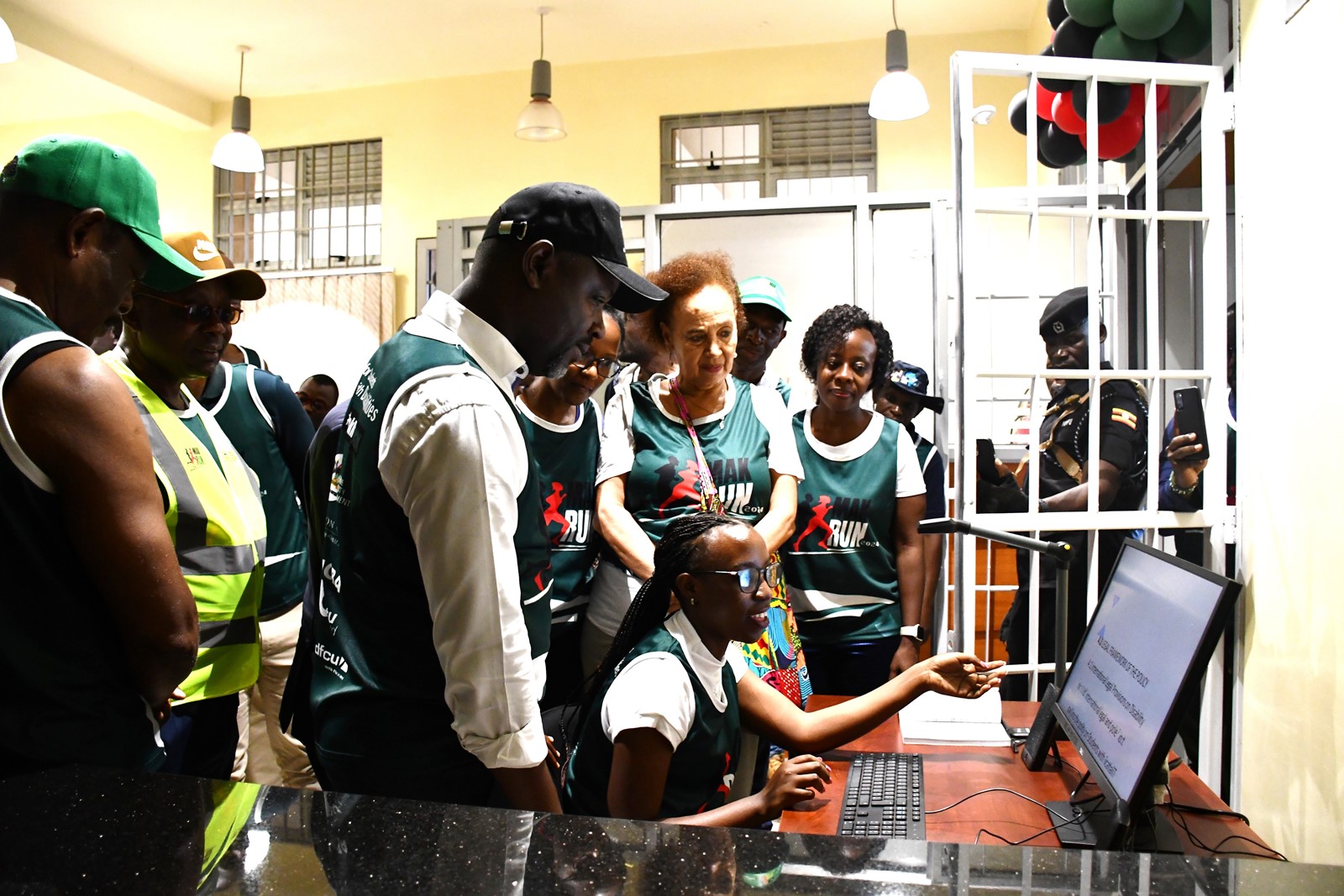
Students with disabilities at Makerere University have been requested to stop seeking for special attention and instead look for solutions and opportunities for personal growth.
This was during a mental wellness, inclusion and safeguarding session organized by the Dean of Students office and the Mastercard Foundation Scholars Program at Makerere University.
Addressing students on mental health and disability inclusion, Mr. Marvin Ggaliwango, a lecturer at the College of Computing and Information Sciences (CoCIS), noted that if the students stop complaining, they will become empowered to take charge of their own development, build resilience and engage confidently in both academic and social environments.
“Turn your lived experiences into tools for innovation. Stop complaining and start creating solutions for yourselves. You are the one living this life, and that gives you the authority to be an expert. When you develop a solution, it doesn’t just benefit you, it helps others too, by removing barriers,” Mr. Marvin Ggaliwango, said.
He encouraged students to see themselves not as victims of circumstance, but as active participants and co-creators of the inclusive environment they wish to experience.
“Learn how to communicate effectively and humbly. If you have a problem, express yourself clearly. Do not isolate yourself or feel resentful. You are not defined by disability, you may face disadvantages, but you still have ability,” he encouraged.
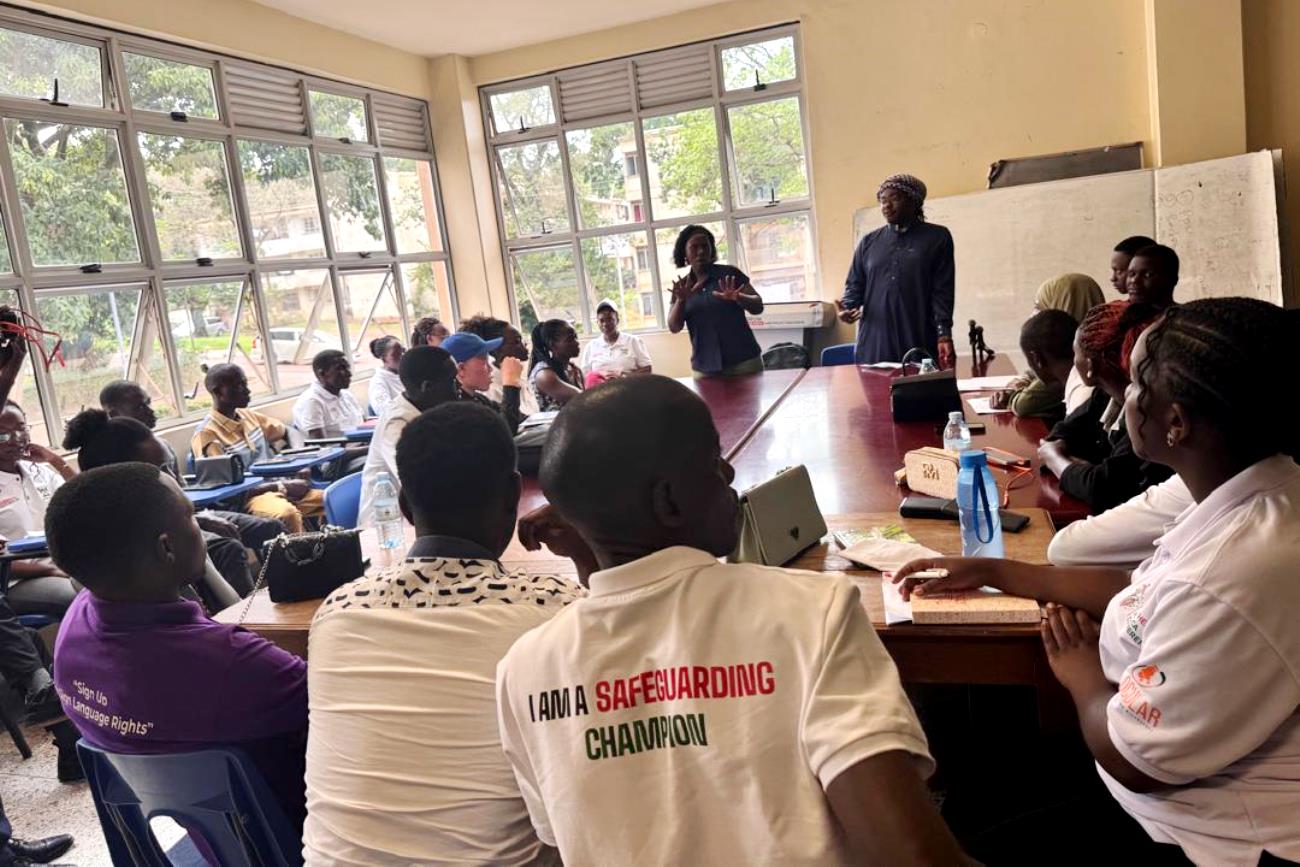
Throughout the session, students listened attentively as he emphasized the importance of self-awareness and personal responsibility, urging them to understand their strengths, acknowledge their limitations and take deliberate steps toward personal growth while contributing positively to the University community.
“We must enhance and ensure that our mental health is number one. Always choose yourself first. Choose what makes you happy and protect your peace. If you are at peace with yourself, your academics will improve. There is a strong link between mental wellness and academic success,” Mr. Ggaliwango, noted.
In his speech, Mr. Musa Mwambu, the Disability Inclusion Advisor at Light for the World Uganda, called upon the students with disabilities to enhance and ensure that their mental health is prioritized.
“As students living with disabilities, sometimes you over expect, because you have a disability you should be given, listened to and when people do not listen to you, you attribute it to your disability, get it from me, even those without disabilities are not listened too. Things are not happening to you because of your disability it is because of the world we live in. Everything that happens to you can happen to others,” Mr Mwambu, noted.
“Have fun with your life. Make yourself happy and be smart. Present yourself in public confidently wherever you go. The way you carry yourself can improve your mental health and how others perceive you,” Mr. Mwambu said.
He reminded the students that gaining admission to Makerere is itself a milestone.
“There are many people without disabilities who have never stepped at Makerere University. Find something that empowers you and hold on to it. You may have a physical impairment, but if you are brilliant in class, you can lead discussions and inspire others,” he added.

During the session, Dr. Rodney Rugyema, the Acting Principal Warden, welcomed the students back from the long holiday. He assured them that the University is committed to their safety and well-being while on campus.
Dr. Rugyema emphasized that the University has systems in place to protect students, both physically and psychologically and encouraged them to report any concerns promptly.
“When you are at the University, you are not on your own, we are always here for you. For us to engage you on mental wellness and inclusion, we want you to be in the right state of mind, whole and complete,” Dr Rugyema, said.
He added: “We are here to empower you and we are calling upon you not be a risk for yourself and always be able to detect risks that are likely to affect your mental health and works towards avoiding them and reporting them to ensure that the University manages them before they escalate into real harm whose impact is more serious than you can think,”
During the session, Ms. Diane Nabikolo Osiru highlighted the University’s broader commitment to safeguarding.
Safeguarding at Makerere University refers to measures put in place to promote safety and wellness of all students, staffs and other stakeholders.
“At Makerere University, safety is not a luxury for few. but it is a right for every student. As the semesters begins, we are urging you to learn how to identify signs of harm or abuses and report them to the appropriate safeguarding contact points,” Ms Nabikolo, said.
For support in case of any harm or abuse, International and Refugee Students, can access support through the Advancement and International Office, while Students with Disabilities, can utilize the Disability Support Center. Those with personal and emotional challenges, can visit the Counselling and Guidance Centre.
In his speech, Dr Joab Agaba, a Lecturer in the College of Computing and Information Sciences, guided students how to report risks and incidences to the MakSafeSpace, the e-reporting platform complimenting the other University traditional reporting channels.
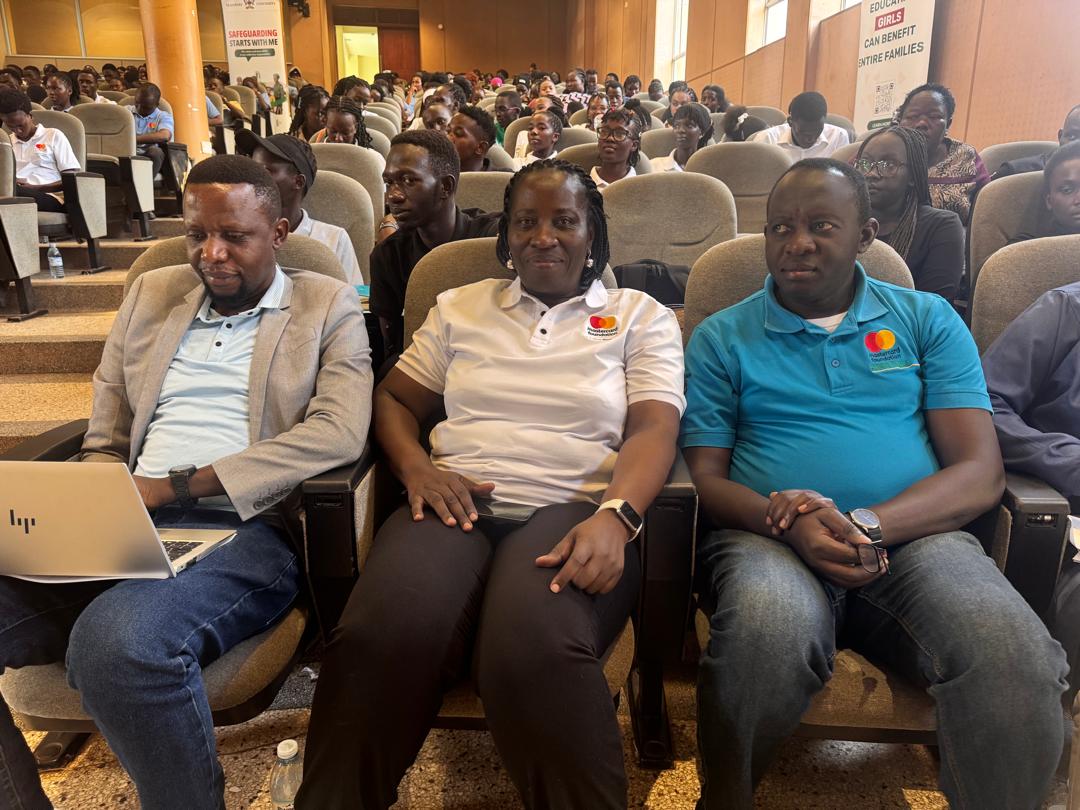
Mr. Henry Nsubuga, the Manager of the Counselling and Guidance Center, shared practical strategies for coping with stress effectively including time management, setting realistic goals, seeking support from peers or counsellors.
Students speak out
Shanitah Nahamya, 2nd year student of the Bachelor of Adult and Community Education
“I have learned how to respectfully and appropriately engage with students with disabilities. In the past, I often felt pity when I encountered them, but now I understand that what they need is not pity, it is respect, support, and equal opportunity.”
Guo Dorothy Geri, 1st year student of the Bachelor of Commerce
“I have learnt how to use inclusive language. Before offering help to a student with a disability, I will first ask them, because not all the time do they need our help. You might think someone wants to be helped to cross the road, yet they are waiting for someone.”
Valentines Doris Aduka, 1st Year student of the Bachelor of Biomedical Science
“I have been calling students with disabilities special names, thinking it was kind. But I have learned that they do not want to be treated differently or labeled in a special way. What they value most is being treated like everyone else, with respect, dignity, and fairness.”
General
Strengthening Global Partnerships to Advance Research, Innovation, and Graduate Training: Makerere University Hosts Delegation from the University of Warwick
Published
5 days agoon
February 19, 2026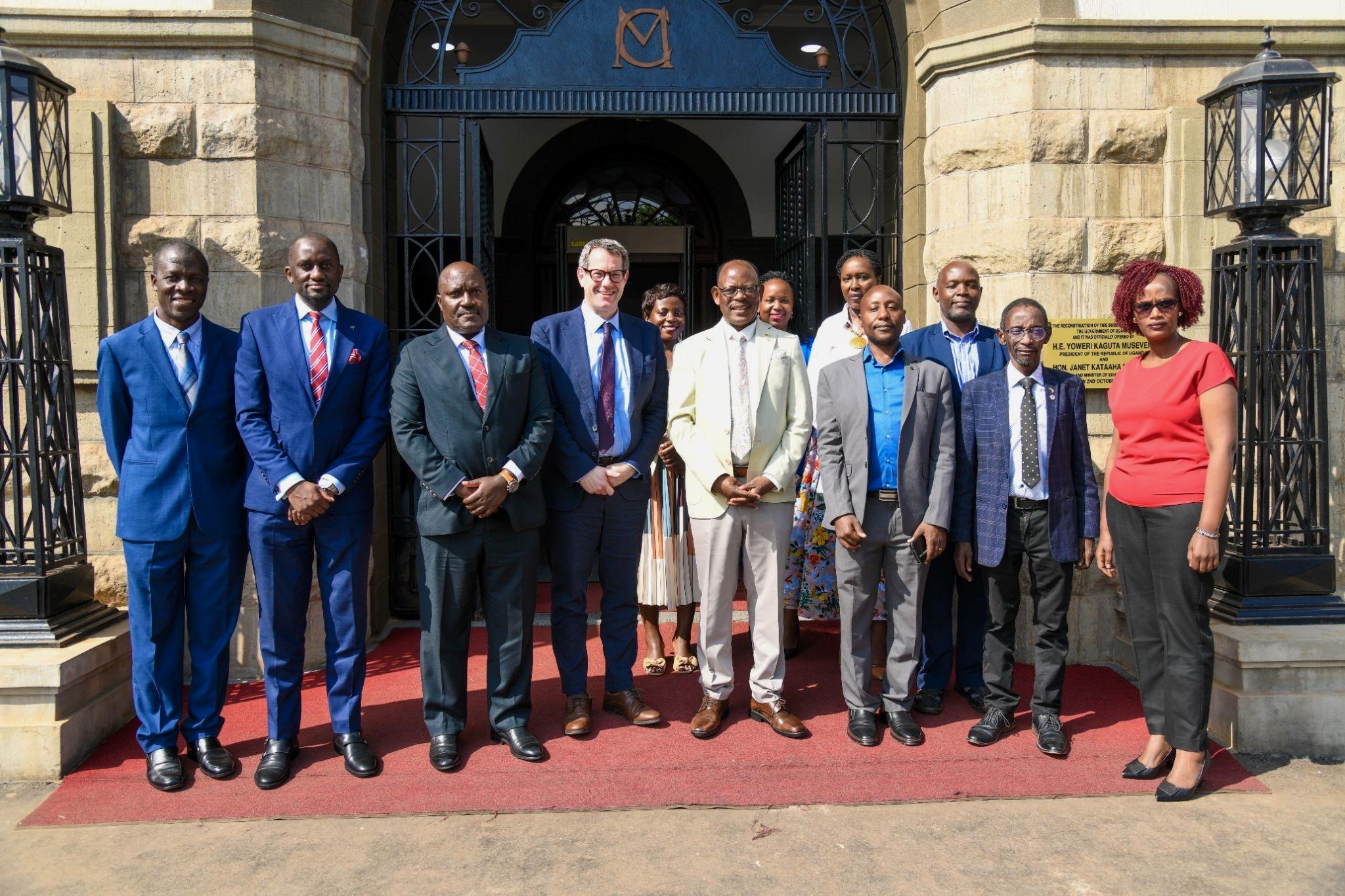
Makerere University continues to deepen its global engagement agenda through strategic partnerships that enhance research, innovation, and graduate training. On Friday, 13th February, 2025, during a recent engagement with a delegation from the University of Warwick (UK), university leaders, researchers, and administrators explored potential collaborations to address pressing development challenges and strengthen institutional capacity.
Expanding Collaboration in Research and Innovation
Welcoming the delegation, Prof. Fred Masagazi-Masaazi, Chairperson of the Makerere University Research and Innovations Fund (Mak-RIF) Grants Management Committee, emphasized the growing dialogue between Makerere University and the University of Warwick. He noted that ongoing discussions are focused on resource mobilization to support research and innovation, as well as building sustainable academic exchanges for both staff and students.
Dr. Roy Mayega, Mak-RIF Coordinator, together with Mrs. Phoebe Lutaaya Kamya, Deputy Coordinator, and members of the Mak-RIF team, highlighted the Fund’s role in catalyzing collaborative research and strengthening partnerships that translate research into societal impact.
Mr. Simon Kizito, Deputy University Secretary, outlined key areas identified for collaboration, including joint research and innovation initiatives, benchmarking visits across disciplines such as law, science, and ICT, and student exchanges designed to strengthen applied research skills. He also pointed to opportunities for training Makerere staff in specialized areas such as tropical diseases and innovation ecosystems, drawing lessons from Warwick’s strong linkages with industry partners located within its campus.
Makerere’s Strategic Priorities and Global Role
In his remarks, the Vice Chancellor underscored the longstanding relationship between Makerere University and the University of Warwick, dating back to the early 1980s, initially through staff training and more recently through collaborative research.
He highlighted Makerere’s historic contribution to leadership development across Africa and beyond, and the University’s continued growth following faculty rebuilding efforts in the 1980s, which have strengthened its research capacity. Today, Makerere has over 1,300 academic staff, more than 1,000 of whom hold PhDs, positioning the institution to play a leading role in knowledge production.
The Vice Chancellor also outlined major thematic areas where partnerships are critical:
- Climate change and food security: Researchers at the College of Agricultural and Environmental Sciences (CAES) are developing drought-resistant and high-yield seed varieties to address changing weather patterns and food insecurity.
- Public health and infectious diseases: Uganda faces frequent outbreaks of diseases such as Ebola and Marburg, and Makerere has built strong capacity in outbreak response and tropical medicine. The University’s medical school and the Infectious Diseases Institute (IDI) continue to play a pivotal role in research and treatment.
- Peace and conflict studies: Through initiatives such as the Rotary Peace Centre, Makerere contributes to training global leaders in conflict resolution.
- Climate-sensitive macroeconomic modelling: Makerere recently hosted a conference in collaboration with the Ministry of Finance, Planning and Economic Development to advocate for climate-responsive macroeconomic modelling and to plan for the establishment of a Centre of Excellence in this field.
- Innovation and technology: The University’s innovation ecosystem has produced notable outputs, including Africa’s first electric vehicle and ongoing work to expand incubation facilities to enable students to graduate with viable enterprises.
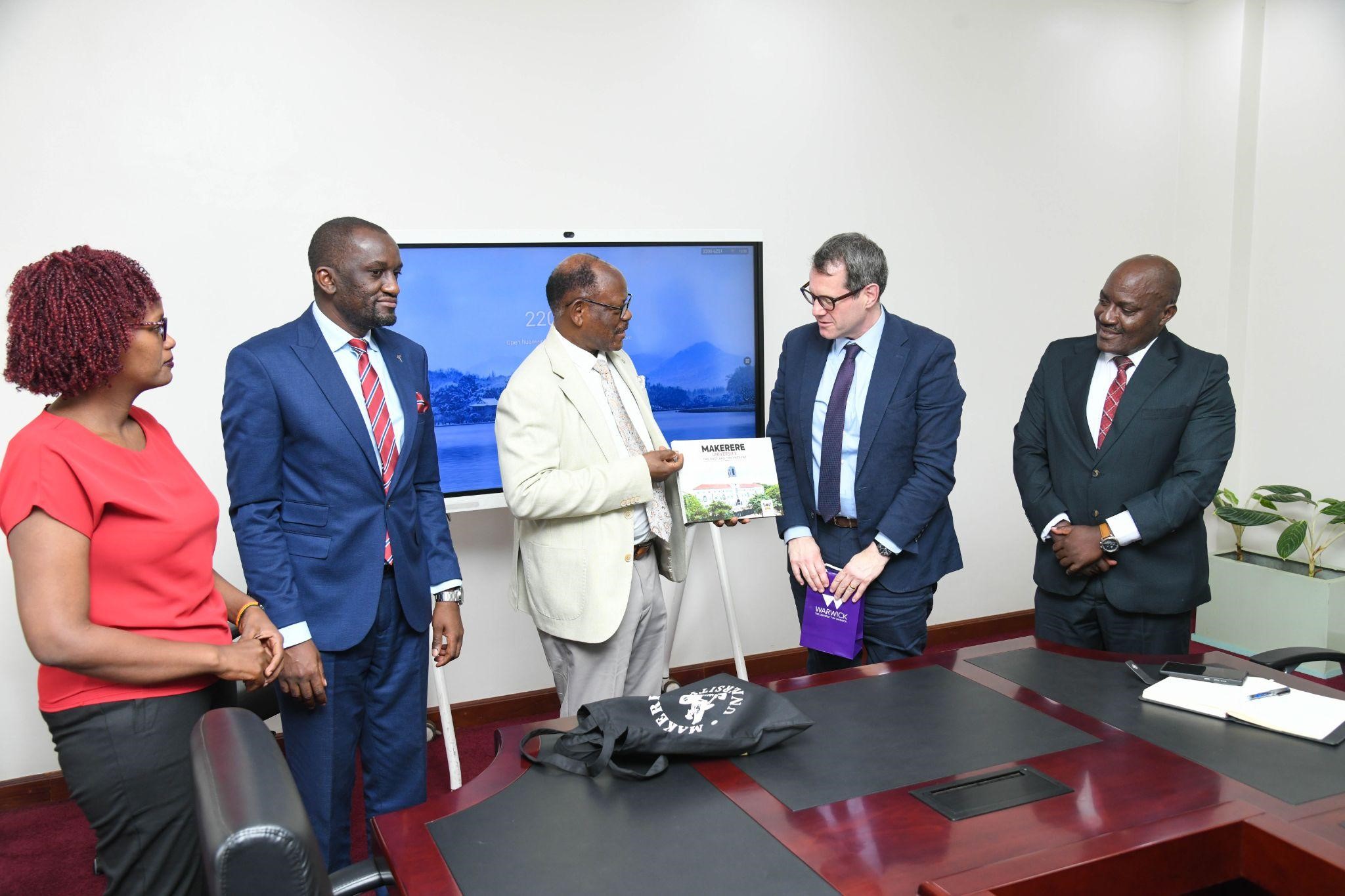
The Vice Chancellor emphasized that addressing youth unemployment remains a central priority, noting that innovation, entrepreneurship, and graduate training are essential to building stable societies.
He further stressed the importance of expanding graduate education. Africa currently produces a small proportion of global research output, and increasing PhD and Master’s training supported by international partnerships remains critical to accelerating knowledge production and development outcomes.
Internationalization and Shared Learning
Speaking on behalf of the University of Warwick, Professor Daniel Branch, Deputy Vice Chancellor, reflected on Warwick’s own institutional journey, noting that its growth has been driven by a strong focus on internationalization, innovation, and research. He expressed Warwick’s commitment to building productive partnerships with African universities, including Makerere, to advance joint research, training, and innovation.
Professor Branch also highlighted the importance of university-industry linkages, citing examples such as collaborations with major manufacturing firms that provide practical training opportunities and inform curriculum development.
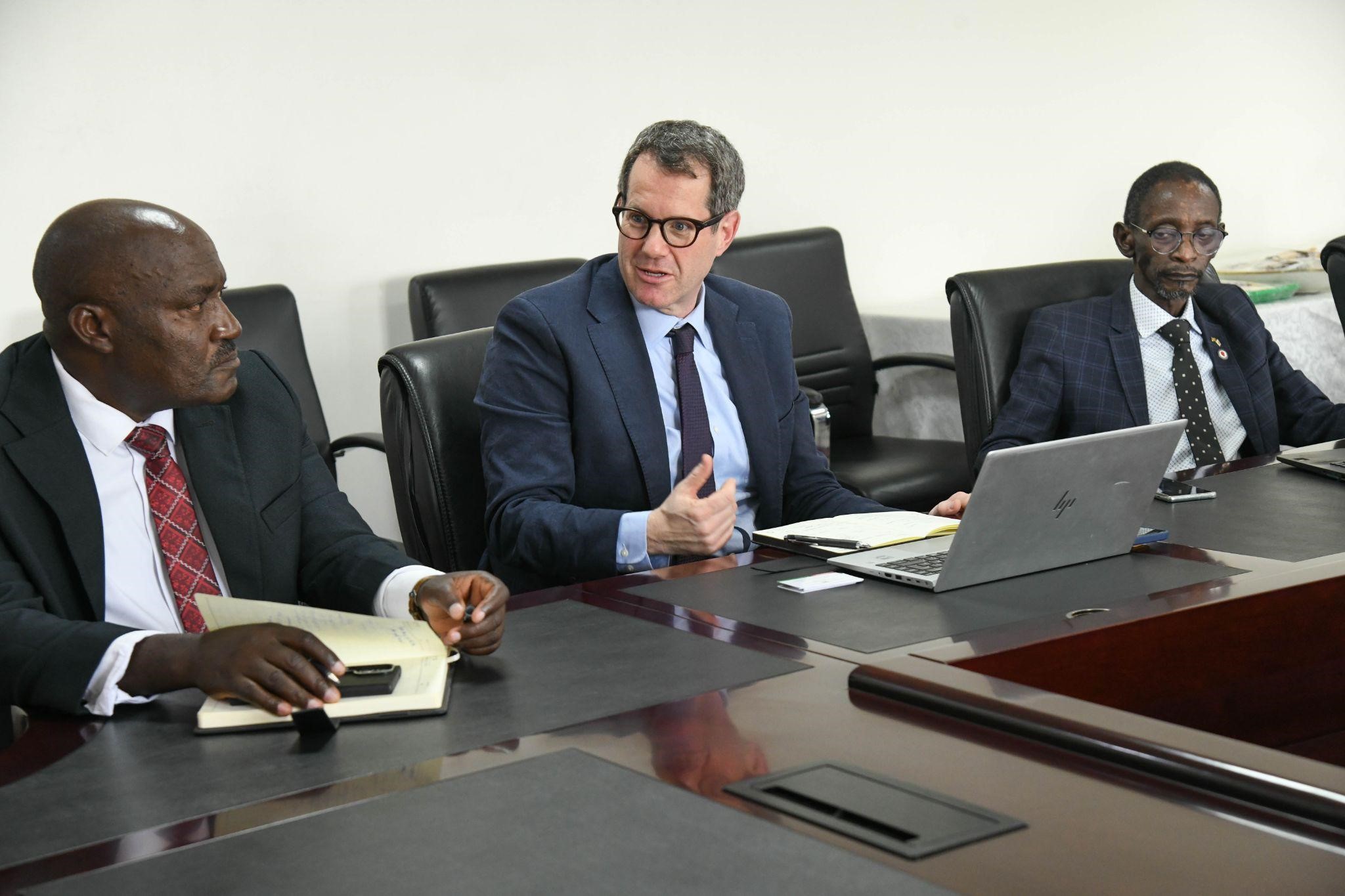
Showcasing Research and Innovation at CEDAT
A second session of the engagement was held at the College of Engineering, Design, Art and Technology (CEDAT), where academic leaders and researchers presented ongoing work across multiple disciplines.
Presentations included:
- Development of a solar water pump through reverse engineering (Dr. Edmund Tumusiime)
- Crane Cloud, a locally developed cloud-computing platform (team from the College of Computing and Information Sciences)
- Profiling gaseous emissions associated with burnt bricks (Dr. Nathan)
- Integration of centralized grid and decentralized renewable off-grid systems: a techno-economic analysis (Dr. Abubaker Waswa)
- Innovation and digitalization pathways for affordable housing in Sub-Saharan Africa (Prof. Stephen Mukiibi)
The session was attended by CEDAT leadership, including the Principal, Prof. Moses Musinguzi, as well as deans and heads of department from engineering, built environment, and industrial and fine arts. The day’s activities were concluded with a tour of Makerere University’s Innovation Hub.
The engagement reaffirmed Makerere University’s commitment to building strong, mutually beneficial partnerships that accelerate research, strengthen graduate training, and drive innovation. As global challenges such as climate change, public health threats, and youth unemployment intensify, collaboration among universities remains essential to developing scalable, evidence-based solutions.
Through partnerships such as the one Makerere University and the University of Warwick hope to activate through a Memorandum of Understanding in the near future, Makerere continues to position itself as a leading research-intensive university dedicated to transforming society through knowledge, innovation, and global cooperation.
Caroline Kainomugisha is the Communications Officer, Advancement Office, Makerere University.
Trending
-

 General2 weeks ago
General2 weeks agoAptitude Exam (Paper 1) Results for the Mature Age Entry Scheme 2026/2027
-

 Health5 days ago
Health5 days agoUganda has until 2030 to end Open Defecation as Ntaro’s PhD Examines Kabale’s Progress
-

 General5 days ago
General5 days agoMastercard Foundation Scholars embrace and honour their rich cultural diversity
-

 General2 weeks ago
General2 weeks agoFor Youth by Youth – Call for Second Cohort Applications
-

 Agriculture & Environment4 days ago
Agriculture & Environment4 days agoUganda Martyrs Namugongo Students Turn Organic Waste into Soap in an Innovative School Project on Sustainable Waste Management
